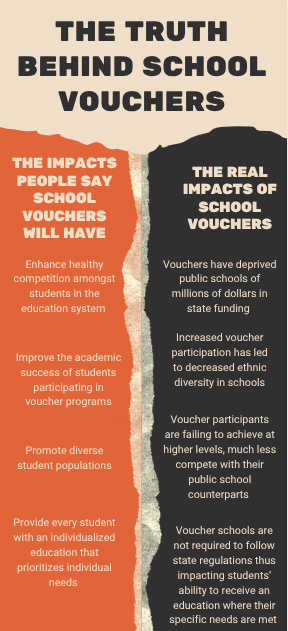A West Ottawa Sr. said, “Last year, I approached my dad and asked him if I could log into his FanDuel account to put a $20 bet on the Lions to beat the Packers. To my surprise, he was alright with me doing this, so I placed the bet. If the bet hit, I would be walking away with $20 in earnings. From kickoff to the final whistle, the Lions dominated the Packers, winning 34-20. Since this moment, I’ve been hooked on sports betting, experiencing plenty of wins.”
After a win, the brain releases neurotransmitters, primarily dopamine. Dopamine is associated with pleasure and reward, generating feelings of excitement and euphoria. Once the brain’s reward system is activated, the specific behavior that led to the euphoric feeling is repeated, with hopes of experiencing the same excitement. When some individuals win once or twice, their brain craves a dopamine rush, causing unhealthy gambling habits, also referred to as addiction.
Sports gambling can be fun and occasionally lucrative; however, it’s important to be careful as this activity can be highly addictive and financially devastating.
A West Ottawa Jr. said, “In July, I secretly logged into my dad’s DraftKings account and placed a $25 bet on the Tigers to upset the Dodgers. If the Tigers pulled off the upset, I would win $60. The Tigers, on fire as of late, pounced on the Dodgers early, taking a 3-0 lead. With the way things were going, I thought this was about to be the easiest win of my life; however, I would soon be humbled. The Dodgers clawed their way back and ended up winning 4-3. Not only did I just lose $25, but the loss made me want to gamble again and again, in hopes of making my money back. Unfortunately, this unhealthy gambling addiction ended up losing me even more money.”
Not only do gamblers experience adrenaline rushes while winning, but they also get similar feelings while losing. Adrenaline drastically increases one’s heart rate, increasing blood flow to the brain. The increased blood flow increases one’s alertness and energy levels. The uncertainty that comes with gambling is what motivates players to continue gambling, despite wins or losses.
The father of a West Ottawa student said, “My son has been pretty open with me about wanting to gamble. I gave him permission to use my ID and personal information to sign up. At first, nothing appeared to be an issue as he would only place small amounts of money on sports. I’ve always had access to his account, so I’m able to see all of the bets he places. I tried my best to monitor and supervise his activity to ensure he wouldn’t become addicted or blow through his money carelessly. It wasn’t until a month or two ago when my son approached me about his struggles with addiction. As soon as I became aware of his addiction, I made sure to get him the help he needed. I would’ve never thought my son would fall into addiction; however, I was proven wrong.”
Addiction comes with many harsh realities such as: debt, relationship struggles, and anxiety.
Oftentimes, reaching out to friends, family, and professionals are necessary to overcome addiction. For those struggling with addiction, the first step is to acknowledge the issue and inform friends and family. Opening up to friends and family is crucial, as they can assist with finding a counselor who specializes with addiction. These counselors can then evaluate and assess their clients’ struggles, eventually helping them overcome their addiction.
Many teens grow up, witnessing their peers gamble money carelessly. These experiences negatively influence them to follow in their footsteps. Teens all throughout the world create fake accounts or use peers’ accounts, so they can legally gamble and donate their money to casinos.
FanDuel, established on July 21, 2009, is one of the many online betting apps that has taken the world by storm. FanDuel reports that an average of 17 million Americans use their app. It’s estimated that roughly 30% of these users (5,100,000) are under the age of 18.
Another online betting app that has taken over the world is DraftKings. DraftKings, established on March 27, 2012, reports that roughly eight million Americans use their app. It’s estimated that around 15% (1,200,000) of DraftKings’ users are under the age of 18.
Although gambling sites like FanDuel and DraftKings have many complex steps to ensure users are over 18, these security steps can be bypassed from lying or with the help of an adult peer.
On these apps, bettors can either play classic games such as blackjack and roulette, or wager money on sporting events, in hopes of defying the odds and winning big. Once these companies successfully convince individuals to sign up and place a bet, this is when addiction poses a threat.
Sources say that roughly 1.2-6.2% of Americans face gambling addictions. A few of the many consequences caused by unhealthy gambling habits are financial difficulties, relationship conflicts, and anxiety.
The problem with addiction is that people are unable to quit. Not knowing when to quit has put a decent sum of gamblers in piles of debt, causing them to lose their house, car, and job. Losing these valuables can also destroy relationships, often leading to divorces. Being financially unstable and losing loved ones builds up stress and anxiety, worsening one’s mental health.
Teen brains are still young and maturing, specifically in the prefrontal cortex. The prefrontal cortex is primarily responsible for impulse control, decision making, and risk assessment. Impulse control is the inability to resist a drive to perform an action. Decision making is the process of making healthy choices. Risk assessment is the inability to identify potential hazards or dangers. The prefrontal cortex isn’t fully developed until the mid to late 20s. Teens who prematurely expose their prefrontal cortex to gambling can cause unhealthy gambling habits in the future.







